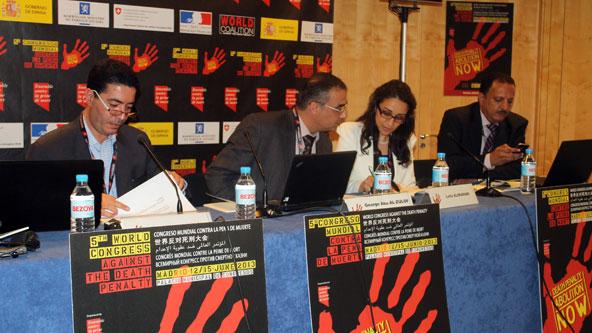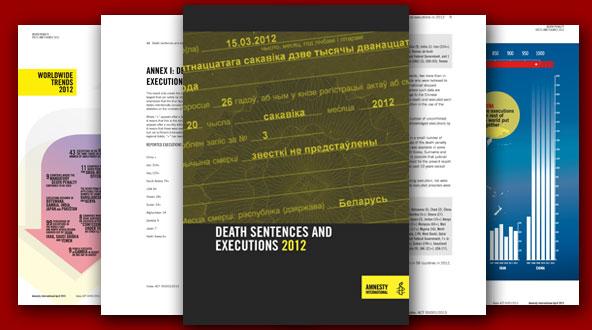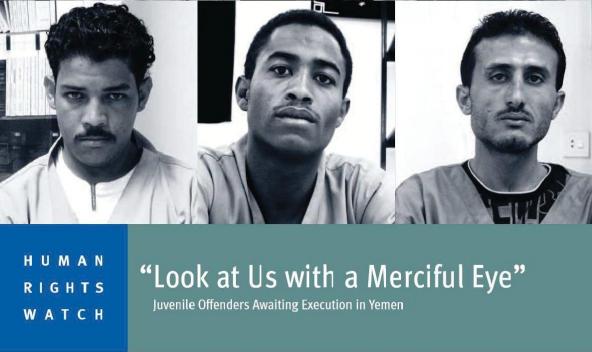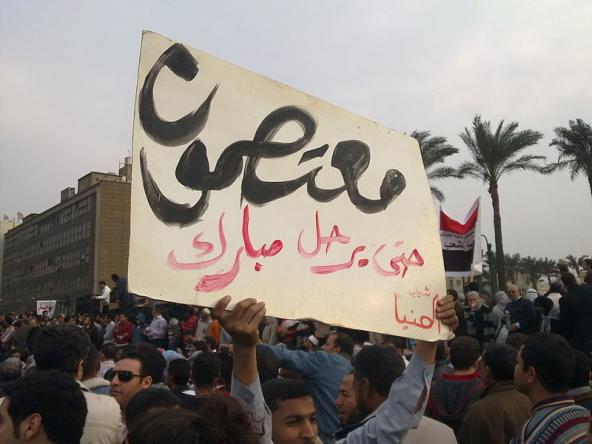| 2021 | Last known execution |
| Stoning, Shooting | Method(s) of execution |
| No | Party to the International Covenant on Civil and Political Rights |
| No | Party to the Second Optional Protocol to the ICCPR, aiming at the abolition of the death penalty |
| Not applicable | Party to the American Convention on Human Rights |
| Not applicable | Party to the Protocol to the American Convention on Human Rights to Abolish the Death Penalty |
| No | UN Moratorium Resolution (2010): cosponsor |
| Against | UN Moratorium Resolution (2010): vote |
| Yes | UN Moratorium Resolution (2010): has signed the Note Verbale of Dissociation |
| No | UN Moratorium Resolution (2012): cosponsor |
| Against | UN Moratorium Resolution (2012): vote |
| Yes | UN Moratorium Resolution (2012): has signed the Note Verbale of Dissociation |
| Unclear | Does the country have a mandatory death penalty? |
| 2023-05-23 | Last update |
Source: Cornell Center on the Death Penalty Worldwide
*Source of classification: Amnesty International
Related document(s)
Document(s)
Killing in the Name of God: State-sanctioned Violations of Religious Freedom
By Eleos Justice, Monash University, on 10 November 2021
2021
Academic report
Brunei Darussalam
Iran (Islamic Republic of)
Maldives
Mauritania
Nigeria
Qatar
Saudi Arabia
Somalia
United Arab Emirates
Yemen
More details See the document
As of 2020, blasphemy was formally criminalised in some 84 countries. As many as 21 countries criminalised apostasy as of 2019. The legal penalties for such offences range from fines to imprisonment to corporal punishment—and in at least 12 countries, the death penalty.
This report examines the extent to which States commit, or are complicit in, killings that violate religious freedom. Focussing on the 12 States in which offences against religion are lawfully punishable by death, we examine four different types of State-sanctioned killings on the basis of religious offence (apostasy, blasphemy, or alike) or affiliation (most commonly, membership of a religious minority): judicial executions, extrajudicial killings, killings by civilians, and killings by extremist groups. We explore the relationship between the retention of the death penalty for religious offences and other forms of State-sanctioned killings motivated by alleged religious offending or by religious identity.
- Document type Academic report
- Countries list Brunei Darussalam / Iran (Islamic Republic of) / Maldives / Mauritania / Nigeria / Qatar / Saudi Arabia / Somalia / United Arab Emirates / Yemen
Document(s)
Yemen – Committee on the Elimination of Discrimination Against Women – Death Penalty – September 2021
on 20 September 2021
2021
NGO report
World Coalition
Women
Yemen
More details Download [ pdf - 272 Ko ]
Women in conflict with the law in Yemen are at risk of experiencing gender-based discrimination within the legal system and while detained. Such discrimination is particularly acute when women are at risk of being sentenced to death. For example, in Houthi-controlled parts of Yemen, women are in danger of being sentenced to death for “spying,” often based primarily on the conduct of their male family members. In parts of the country controlled by the internationally recognized Government of Yemen, women accused of capital offenses are denied legal aid to mount a successful defense. And because of the mandatory nature of the death penalty for crimes such as murder, courts do not take into account an accused woman’s experiences of gender-based violence that may have motivated her actions. Women are also often financially unable to gather sufficient resources to pay “blood money” to victims’ families. Detention conditions for women, particularly in Houthi-controlled parts of Yemen, amount to cruel, inhuman, and degrading treatment and in some cases prison authorities torture women detainees.
Because of continued internal conflict in Yemen, there is limited official data regarding the number of women currently sentenced to death. For the same reason, there is only limited information regarding detention conditions of women sentenced to death.
- Document type NGO report / World Coalition
- Countries list Yemen
- Themes list Women
Document(s)
Note verbale dated 13 September 2019 from the Permanent Representative of Egypt to the United Nations addressed to the Secretary-General
By United Nations, on 15 October 2020
2020
United Nations report
Bahrain
Bangladesh
Botswana
Brunei Darussalam
Chad
China
Democratic People's Republic of Korea
Egypt
Ethiopia
Grenada
Iran (Islamic Republic of)
Iraq
Jamaica
Kuwait
Libya
Moratorium
Nigeria
Oman
Pakistan
Papua New Guinea
Qatar
Saint Kitts and Nevis
Saint Lucia
Saint Vincent and the Grenadines
Saudi Arabia
Singapore
Sudan
Syrian Arab Republic
United Arab Emirates
Yemen
Zimbabwe
aresfrruzh-hantMore details See the document
The Permanent Missions to the United Nations inNew York listed below have the honour to refer to General Assembly resolution 73/175, entitled “Moratorium on the use of the death penalty”, which was adopted by the Assembly on 17 December 2018 by a recorded vote. The Permanent Missions wish to place on record that they are in persistent objection to any attempt to impose a moratorium on the use of the death penalty or its abolition in contravention of existing stipulations under international law, for the following reasons:
- Document type United Nations report
- Countries list Bahrain / Bangladesh / Botswana / Brunei Darussalam / Chad / China / Democratic People's Republic of Korea / Egypt / Ethiopia / Grenada / Iran (Islamic Republic of) / Iraq / Jamaica / Kuwait / Libya / Nigeria / Oman / Pakistan / Papua New Guinea / Qatar / Saint Kitts and Nevis / Saint Lucia / Saint Vincent and the Grenadines / Saudi Arabia / Singapore / Sudan / Syrian Arab Republic / United Arab Emirates / Yemen / Zimbabwe
- Themes list Moratorium
- Available languages مذكرة شفوية مؤرخة 13 أيلول/سبتمبر 2019 موجهة إلى الأمين العام من الممثل الدائم لمصر لدى الأمم المتحدةNota verbal de fecha 13 de septiembre de 2019 dirigida al Secretario Generalpor el Representante Permanente de Egipto ante las Naciones UnidasNote verbale datée du 13 septembre 2019, adressée au Secrétaire général par le Représentant permanent de l’Égypte auprès de l’Organisation des Nations UniesВербальная нота Постоянного представителя Египта при Организации Объединенных Наций от 13 сентября 2019 года на имя Генерального секретаря2019年9月13日埃及常驻联合国代表给秘书长的普通照会
Document(s)
Note verbale dated 28 July 2015 from the Permanent Mission of Egypt to the United Nations addressed to the Secretary-General
By United Nations, on 8 September 2020
2020
United Nations report
Antigua and Barbuda
Bangladesh
Botswana
Brunei Darussalam
China
Democratic People's Republic of Korea
Egypt
Ethiopia
Guyana
Iran (Islamic Republic of)
Iraq
Jamaica
Kuwait
Libya
Malaysia
Moratorium
Nigeria
Oman
Pakistan
Qatar
Saudi Arabia
Singapore
Sudan
Syrian Arab Republic
Trinidad and Tobago
United Arab Emirates
Yemen
Zimbabwe
aresfrruzh-hantMore details See the document
The permanent missions to the United Nations in New York listed below have the honour to refer to General Assembly resolution 69/186, entitled “Moratorium on the use of the death penalty”, which was adopted by the Third Committee on 21 November 2014 and subsequently by the General Assembly on 18 December 2014 by a recorded vote. The permanent missions wish to place on record that they are in persistent objection to any attempt to impose a moratorium on the use of the death penalty or its abolition in contravention of existing stipulations under international law, for the following reasons:
- Document type United Nations report
- Countries list Antigua and Barbuda / Bangladesh / Botswana / Brunei Darussalam / China / Democratic People's Republic of Korea / Egypt / Ethiopia / Guyana / Iran (Islamic Republic of) / Iraq / Jamaica / Kuwait / Libya / Malaysia / Nigeria / Oman / Pakistan / Qatar / Saudi Arabia / Singapore / Sudan / Syrian Arab Republic / Trinidad and Tobago / United Arab Emirates / Yemen / Zimbabwe
- Themes list Moratorium
- Available languages مذكرة شفوية مؤرخة 28 تموز/يوليه ٢٠١٥ موجهة إلى الأمين العام من البعثة الدائمة لمصر لدى الأمم المتحدةNota verbal de fecha 28 de julio de 2015 dirigida al Secretario General por la Misión Permanente de Egipto ante las Naciones UnidasNote verbale datée du 28 juillet 2015, adressée au Secrétaire général par la Mission permanente de l’Égypte auprès de l’Organisation des Nations UniesВербальная нота Постоянного представительства Египта при Организации Объединенных Наций от 28 июля 2015 года на имя Генерального секретаря2015年7月28日埃及常驻联合国代表团给秘书长的普通照会
Document(s)
Note verbale dated 16 April 2013 from the Permanent Mission of Egypt to the United Nations addressed to the Secretary-General
By United Nations, on 8 September 2020
United Nations report
Afghanistan
Antigua and Barbuda
Bahrain
Bangladesh
Barbados
Botswana
Brunei Darussalam
Chad
China
Democratic People's Republic of Korea
Egypt
Equatorial Guinea
Eritrea
Eswatini
Ethiopia
Grenada
Guyana
India
Iran (Islamic Republic of)
Iraq
Jamaica
Kuwait
Lao People's Democratic Republic
Libya
Malaysia
Mauritania
Moratorium
Myanmar
Nigeria
Oman
Pakistan
Papua New Guinea
Qatar
Saint Kitts and Nevis
Saint Lucia
Saint Vincent and the Grenadines
Saudi Arabia
Singapore
Solomon Islands
Somalia
Sudan
Syrian Arab Republic
Tonga
Trinidad and Tobago
Uganda
United Arab Emirates
Yemen
Zimbabwe
aresfrruzh-hantMore details See the document
The permanent missions to the United Nations in New York listed below have the honour to refer to General Assembly resolution 67/176, entitled “Moratorium on the use of the death penalty”, which was adopted by the Third Committee on 19 November 2012, and subsequently by the General Assembly on 20 December 2012 by a recorded vote. The permanent missions wish to place on record that they are in persistent objection to any attempt to impose a moratorium on the use of the death penalty or its abolition in contravention of existing stipulations under international law, for the following reasons:
- Document type United Nations report
- Countries list Afghanistan / Antigua and Barbuda / Bahrain / Bangladesh / Barbados / Botswana / Brunei Darussalam / Chad / China / Democratic People's Republic of Korea / Egypt / Equatorial Guinea / Eritrea / Eswatini / Ethiopia / Grenada / Guyana / India / Iran (Islamic Republic of) / Iraq / Jamaica / Kuwait / Lao People's Democratic Republic / Libya / Malaysia / Mauritania / Myanmar / Nigeria / Oman / Pakistan / Papua New Guinea / Qatar / Saint Kitts and Nevis / Saint Lucia / Saint Vincent and the Grenadines / Saudi Arabia / Singapore / Solomon Islands / Somalia / Sudan / Syrian Arab Republic / Tonga / Trinidad and Tobago / Uganda / United Arab Emirates / Yemen / Zimbabwe
- Themes list Moratorium
- Available languages مذكرة شفوية مؤرخة 16 نيسان/أبريل 2013 موجهة إلى الأمين العام من البعثة الدائمة لمصر لدى الأمم المتحدةNota verbal de fecha 16 de abril de 2013 dirigida al Secretario General por la Misión Permanente de Egipto ante las Naciones UnidasNote verbale datée du 16 avril 2013, adressée au Secrétaire général par la Mission permanente de l’Égypte auprès de l’Organisation des Nations UniesВербальная нота Постоянного представительства Египта при Организации Объединенных Наций от 16 апреля 2013 года на имя Генерального секретаря2013年4月16日埃及常驻联合国代表团给秘书长的普通照会
Document(s)
Note verbale dated 11 March 2011 from the Permanent Mission of Egypt to the United Nations addressed to the Secretary-General
By United Nations, on 8 September 2020
United Nations report
Afghanistan
Antigua and Barbuda
Bahamas
Bahrain
Bangladesh
Barbados
Botswana
Brunei Darussalam
Central African Republic
Chad
China
Democratic People's Republic of Korea
Democratic Republic of the Congo
Dominica
Egypt
Equatorial Guinea
Eritrea
Eswatini
Ethiopia
Grenada
Guinea
Guyana
Indonesia
Iran (Islamic Republic of)
Iraq
Jamaica
Kuwait
Lao People's Democratic Republic
Libya
Malaysia
Moratorium
Myanmar
Niger
Nigeria
Oman
Pakistan
Papua New Guinea
Qatar
Saint Kitts and Nevis
Saint Lucia
Saint Vincent and the Grenadines
Saudi Arabia
Sierra Leone
Singapore
Solomon Islands
Somalia
Sudan
Syrian Arab Republic
Tonga
Trinidad and Tobago
Uganda
United Arab Emirates
Yemen
Zimbabwe
aresfrruzh-hantMore details See the document
The permanent missions to the United Nations in New York listed below have the honour to refer to General Assembly resolution 65/206, entitled “Moratorium on the use of the death penalty”, which was adopted by the Third Committee on 11 November 2010, and subsequently by the General Assembly on 21 December 2010 by a recorded vote. The permanent missions wish to place on record that they are in persistent objection to any attempt to impose a moratorium on the use of the death penalty or its abolition in contravention of existing stipulations under international law, for the following reasons:
- Document type United Nations report
- Countries list Afghanistan / Antigua and Barbuda / Bahamas / Bahrain / Bangladesh / Barbados / Botswana / Brunei Darussalam / Central African Republic / Chad / China / Democratic People's Republic of Korea / Democratic Republic of the Congo / Dominica / Egypt / Equatorial Guinea / Eritrea / Eswatini / Ethiopia / Grenada / Guinea / Guyana / Indonesia / Iran (Islamic Republic of) / Iraq / Jamaica / Kuwait / Lao People's Democratic Republic / Libya / Malaysia / Myanmar / Niger / Nigeria / Oman / Pakistan / Papua New Guinea / Qatar / Saint Kitts and Nevis / Saint Lucia / Saint Vincent and the Grenadines / Saudi Arabia / Sierra Leone / Singapore / Solomon Islands / Somalia / Sudan / Syrian Arab Republic / Tonga / Trinidad and Tobago / Uganda / United Arab Emirates / Yemen / Zimbabwe
- Themes list Moratorium
- Available languages مذكرة شفوية مؤرخة 11 آذار/مارس 2011 موجَّهة إلى الأمين العام من البعثة الدائمة لمصر لدى الأمم المتحدةNota verbal de fecha 11 de marzo de 2011 dirigida al Secretario General por la Misión Permanente de Egipto ante las Naciones UnidasNote verbale datée du 11 mars 2011, adressée au Secrétaire général par la Mission permanente de l’Égypte auprès de l’Organisation des Nations UniesВербальная нота Постоянного представительства Египта при Организации Объединенных Наций от 11 марта 2011 года на имя Генерального секретаря2011年3月11日埃及常驻联合国代表团给秘书长的普通照会
Document(s)
Note verbale dated 10 February 2009 from the Permanent Missions to the United Nations of Afghanistan, the Bahamas, […] and Zimbabwe addressed to the Secretary-General
By United Nations, on 8 September 2020
United Nations report
Afghanistan
Bahamas
Bahrain
Bangladesh
Barbados
Botswana
Brunei Darussalam
Central African Republic
Chad
China
Comoros
Democratic People's Republic of Korea
Dominica
Egypt
Equatorial Guinea
Eritrea
Eswatini
Ethiopia
Fiji
Gambia
Grenada
Guinea
Guyana
Indonesia
Iran (Islamic Republic of)
Iraq
Jamaica
Japan
Jordan
Kuwait
Lao People's Democratic Republic
Libya
Malaysia
Maldives
Mauritania
Mongolia
Moratorium
Myanmar
Niger
Nigeria
Papua New Guinea
Qatar
Saint Kitts and Nevis
Saint Lucia
Saint Vincent and the Grenadines
Saudi Arabia
Singapore
Solomon Islands
Somalia
Sudan
Suriname
Syrian Arab Republic
Thailand
Tonga
Trinidad and Tobago
Uganda
United Arab Emirates
Yemen
Zimbabwe
aresfrruzh-hantMore details See the document
The Permanent Missions to the United Nations in New York listed below present their compliments to the Secretary-General of the United Nations and have the honour to refer to resolution 62/149, entitled “Moratorium on the use of the death penalty”, which was adopted by the Third Committee on 15 November 2007, and subsequently by the General Assembly on 18 December 2007 by a recorded vote. The Permanent Missions wish to place on record that they are in persistent objection to any attempt to impose a moratorium on the use of the death penalty or its abolition in contravention to existing stipulations under international law, for the following reasons:
- Document type United Nations report
- Countries list Afghanistan / Bahamas / Bahrain / Bangladesh / Barbados / Botswana / Brunei Darussalam / Central African Republic / Chad / China / Comoros / Democratic People's Republic of Korea / Dominica / Egypt / Equatorial Guinea / Eritrea / Eswatini / Ethiopia / Fiji / Gambia / Grenada / Guinea / Guyana / Indonesia / Iran (Islamic Republic of) / Iraq / Jamaica / Japan / Jordan / Kuwait / Lao People's Democratic Republic / Libya / Malaysia / Maldives / Mauritania / Mongolia / Myanmar / Niger / Nigeria / Papua New Guinea / Qatar / Saint Kitts and Nevis / Saint Lucia / Saint Vincent and the Grenadines / Saudi Arabia / Singapore / Solomon Islands / Somalia / Sudan / Suriname / Syrian Arab Republic / Thailand / Tonga / Trinidad and Tobago / Uganda / United Arab Emirates / Yemen / Zimbabwe
- Themes list Moratorium
- Available languages مذكرةشفويةمؤرخة١٠شـباط/فبرايـر٢٠٠٩Nota verbal de fecha 10 de febrero de 2009 dirigida al Secretario General por las misiones permanentes ante las Naciones Unidas del Afganistán, la Arabia Saudita, [...] y ZimbabweNote verbale datée du 10 février 2009, adressée au Secrétaire général par les Missions permanentes auprès de l’Organisation des Nations Unies de l’Afghanistan, de l’Arabie saoudite, [...] et du ZimbabweВербальная нота постоянных представительств Афганистана, БагамскихОстровов, […] и Чада при Организации Объединенных Наций от 10 февраля 2009 года на имя Генерального секретаря9年2月10日阿富汗、巴哈马、巴林、[...] 也门和津巴布韦常驻联合国代表团给秘书长的普通照会
Document(s)
Note verbale dated 11 January 2008 from the Permanent Missions to the United Nations of Afghanistan, Antigua and Barbuda, […] and Zimbabwe addressed to the Secretary-General
By United Nations, on 8 September 2020
United Nations report
Afghanistan
Antigua and Barbuda
Bahamas
Bahrain
Bangladesh
Barbados
Botswana
Brunei Darussalam
Central African Republic
China
Comoros
Democratic People's Republic of Korea
Dominica
Egypt
Equatorial Guinea
Eritrea
Eswatini
Ethiopia
Fiji
Grenada
Guinea
Guyana
Indonesia
Iran (Islamic Republic of)
Iraq
Jamaica
Japan
Jordan
Kuwait
Lao People's Democratic Republic
Libya
Malaysia
Maldives
Mauritania
Mongolia
Moratorium
Myanmar
Nigeria
Oman
Pakistan
Papua New Guinea
Qatar
Saint Kitts and Nevis
Saint Lucia
Saint Vincent and the Grenadines
Saudi Arabia
Singapore
Solomon Islands
Somalia
Sudan
Suriname
Syrian Arab Republic
Thailand
Tonga
Trinidad and Tobago
Uganda
United Arab Emirates
Yemen
Zimbabwe
aresfrruzh-hantMore details See the document
The Permanent Missions to the United Nations in New York listed below present their compliments to the Secretary-General of the United Nations and have the honour to refer to resolution 62/149, entitled “Moratorium on the use of the death penalty”, which was adopted by the Third Committee on 15 November 2007, and subsequently by the General Assembly on 18 December 2007 by a recorded vote. The Permanent Missions wish to place on record that they are in persistent objection to any attempt to impose a moratorium on the use of the death penalty or its abolition in contravention to existing stipulations under international law, for the following reasons:
- Document type United Nations report
- Countries list Afghanistan / Antigua and Barbuda / Bahamas / Bahrain / Bangladesh / Barbados / Botswana / Brunei Darussalam / Central African Republic / China / Comoros / Democratic People's Republic of Korea / Dominica / Egypt / Equatorial Guinea / Eritrea / Eswatini / Ethiopia / Fiji / Grenada / Guinea / Guyana / Indonesia / Iran (Islamic Republic of) / Iraq / Jamaica / Japan / Jordan / Kuwait / Lao People's Democratic Republic / Libya / Malaysia / Maldives / Mauritania / Mongolia / Myanmar / Nigeria / Oman / Pakistan / Papua New Guinea / Qatar / Saint Kitts and Nevis / Saint Lucia / Saint Vincent and the Grenadines / Saudi Arabia / Singapore / Solomon Islands / Somalia / Sudan / Suriname / Syrian Arab Republic / Thailand / Tonga / Trinidad and Tobago / Uganda / United Arab Emirates / Yemen / Zimbabwe
- Themes list Moratorium
- Available languages مؤرخــةشــفويةمــذكرة11الثــانيكــانون/ينــاير2008Nota verbal de fecha 11 de enero de 2008 dirigida al Secretario General por las Misiones Permanentes ante las Naciones Unidas del Afganistán, Antigua y Barbuda, [...] y Zimbabwe ante las Naciones UnidasNote verbale datée du 11 janvier 2008, adressée au Secrétaire général par les missions permanentes auprès de l’Organisation des Nations Unies de l’Afghanistan, d’Antigua-et-Barbuda, [...] et du ZimbabweВербальная нота Постоянных представительств Антигуа и Барбуды, Афганистана, […] и Японии при Организации Объединенных Наций от 11 января 2008 года на имя Генерального секретаря普通照会2007
Document(s)
Note verbale dated 7 September 2017 from the Permanent Mission of Egypt to the United Nations addressed to the Secretary-General
By United Nations, on 1 January 2017
2017
United Nations report
Antigua and Barbuda
Bangladesh
Barbados
Botswana
Brunei Darussalam
Chad
China
Democratic People's Republic of Korea
Egypt
Ethiopia
Grenada
Iran (Islamic Republic of)
Iraq
Jamaica
Kuwait
Libya
Malaysia
Maldives
Moratorium
Nigeria
Oman
Pakistan
Papua New Guinea
Saint Kitts and Nevis
Saint Lucia
Saint Vincent and the Grenadines
Saudi Arabia
Singapore
Sudan
Syrian Arab Republic
United Arab Emirates
Yemen
Zimbabwe
aresfrruzh-hantMore details See the document
The Permanent Missions to the United Nations in New York listed below have the honour to refer to General Assembly resolution 71/187, entitled “Moratorium on the use of the death penalty”, which was adopted by the Third Committee on 17November 2016 and subsequently by the Assembly on 19 December 2016 by a recorded vote. The Permanent Missions wish to place on record that they are in persistent objection to any attemptto impose a moratorium on the use of the death penalty or its abolition in contravention of existing stipulations under international law, for the following reasons:
- Document type United Nations report
- Countries list Antigua and Barbuda / Bangladesh / Barbados / Botswana / Brunei Darussalam / Chad / China / Democratic People's Republic of Korea / Egypt / Ethiopia / Grenada / Iran (Islamic Republic of) / Iraq / Jamaica / Kuwait / Libya / Malaysia / Maldives / Nigeria / Oman / Pakistan / Papua New Guinea / Saint Kitts and Nevis / Saint Lucia / Saint Vincent and the Grenadines / Saudi Arabia / Singapore / Sudan / Syrian Arab Republic / United Arab Emirates / Yemen / Zimbabwe
- Themes list Moratorium
- Available languages مذكرة شفوية مؤرخة 7 أيلول/سبتمبر 2017 موجهة إلى الأمين العام من البعثة الدائمة لمصر لدى الأمم المتحدةNota verbal de fecha 7 de septiembre de 2017 dirigida al Secretario General por la Misión Permanente de Egipto ante las Naciones Unidas.Note verbale datée du 7 septembre 2017, adressée au Secrétaire général par la Mission permanente de l’Égypte auprès de l’Organisation des Nations UniesВербальная нота Постоянного представительства Египта при Организации Объединенных Наций от 7 сентября 2017 года на имя Генерального секретаря2017 年 9 月 7 日埃及常驻联合国代表团给秘书长的普通照会





